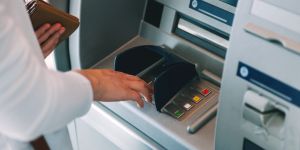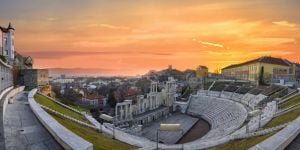researching Bulgaria as a potential Country to move
Last activity 03 April 2023 by Bistra Bogoeva
369 Views
7 replies
Subscribe to the topic
Post new topic
Hi,
Great to join as I've already found some useful information just by reading the forum.
I have just started researching Bulgaria as a potential Country to move to permanently. The more I research, the more attractive it's becoming.
I'm Scottish and I work on the North Sea oil rigs. Partner is a self-employed carpenter. I work two weeks on the rig and 3 weeks off. I lived in Portugal for 8 years until 2018 when I moved back to Scotland but never took residency there. I have lots of questions so apologies in advance but would appreciate any guidance.
What would my tax situation be with working offshore and residing in Bulgaria? I read somewhere that there is a 10% flat rate. Is that just for money earned in Bulgaria? A big reason for moving is the fact that we are just taxed to death in Scotland for dwindling services and it's getting worse. I'd like to live somewhere with a better quality of life, and we are not just working to pay bills!
Would there be any work opportunities for my partner? We know that he would be working for much less than in the UK but if he could make something that would allow him to feel like he's contributing rather than being a kept man, that'd be great lol.
What is the property buying process like? Is it straight forward or complicated? Are there any pitfalls we should be aware of? How difficult is it to get residency status post Brexit and what is the required criteria?
Can a foreigner buy property with a bit of land also? I don't see many such properties advertised. What about buying land and building ourselves? Is it easier to buy an existing house?
Would you advise renting initially? I can't seem to find many reasonably priced long term rental properties. Do rentals typically accept pets?
We have a dog and two cats. Obviously, they're part of the family so would be coming with us. Is veteranary care easy to access?
What is a guide rental price for a detached rental property?
We'd like to be somewhere quiet but not isolated. Within a reasonable driving distance of the coast would be a bonus but not a deal breaker.
What is the public transport system like? I'm thinking for getting to and from the airport for work rather than leave my car and having to pay for parking for two weeks.
Could we buy a car there while renting or would we have to wait until we purchased a property? What are the options for transport in the meantime?
We'd like to try and learn the language, is it particularly difficult? It looks it! Would we get by in the meantime?
Are the Bulgarian people generally welcoming to foreigners?
Is there a big difference in climate North and South? Anything is better than Scottish weather but after spending years in Portugal, I miss the sun! I don't mind cold winters, but I hate a cold house. Are property's centrally heated in Bulgaria?
Sorry for all the questions but any help would be gratefully received.
Helen and Derek.
Gosh what a lot of questions! I'm in the same position as you having visited Bulgaria 3 times in the last 3 months looking for property with land.
As I'm English I will have to buy it via forming a bulgarian company. Am in the process of starting this.
Then to apply for D Visa will need need to be a representative of my own country as this is the best of the 5 allowed reasons for me.
I stay at a lot of airbnbs & find that pets are allowed at most places. I've also found very good quality 1 bedroom apartments for around £24 a night, all with heating & TVs.
Can you learn the language, well that's totally down to you to answer?
Anyway it's all fun, all an adventure :-)
@Rooeyred
Welcome to the expat.com forum and good luck with a potential move to Bulgaria!
As @Steve Barlow says, that's a lorra lorrra questions, innit. :-) You might find you get better response if you create a new topic for particular questions that you really want/need to know.
Like many here, I'm a fan of little ol' Bulgaria. Very scenic country, low population density (like Scotland), low taxation, and very affordable (to buy property and to live here). Also has low-cost flights (Ryanair and Wizzair) back to UK.
10% flat rate applies to world-wide income. You can be self-employed or you can incorporate a BG company then invoice your Oil employer (and you would be an employee of your own company, pay tax and social security every month).
Great pity you did not do residence in Portugal while we were EU citizens. It's harder now as we are non-EU. You need to follow the process for Bulgarian D visa, usually as retiree (with pension), or by TRO (Trade Representative Office) of your foreign (e.g. UK) company. Official info is here:
https://www.mfa.bg/en/services-travel/consular-services/travel-bulgaria/visa-bulgaria
https://www.mfa.bg/upload/716/VISA_TYPE_D.pdf
Working here is more challenging. It's a low-cost and low-wage country, so the money's not great. And a bit of Bulgarian would obviously be very helpful! But there's lots of construction going on, so there's plenty of work for trades. But that's easier in larger cities, perhaps, than in a small village. And there are quite a few Brit expats would be happy to see a good carpenter come round and build some wardrobes or install a kitchen. (If he's that kind of carpenter.)
Buying (or the legal side of buying) is quick and easy as Bulgaria (like much of Europe) uses a notary system. Notary draws up the Notary Act, buyer and seller meet at the notary's office and sign. That's pretty much it! :-)
I'd suggest renting first, as you don't know the country. But house rentals are not so common. It will be much easier to start with an apartment.
You can spend (max) 90 days in 180 here, visa-free with UK passport. So you have time to visit and view properties. You can drive your UK car here too, if you want. But it's a long drive, so probably easier to grab cheap flight over and rent a car at the airport.
Once you are legally resident you can buy a car in BG (or import one from UK) and register it in your name.
Public transport is good, and cheap. There are plenty of trains and buses from Sofia to other cities (and towns). But can be a bit slow.
Parking at the airport is much cheaper than in the UK, I usually leave my car there if it's a trip of 2 weeks or less. Taxis are pretty cheap too, so you might be able to find someone to drive you to/from the airport.
For research, I suggest you check out Ebay (dot co dot uk) as they have overseas property, and always have a few in Bulgaria. There are two regular sellers (BulgariaDirect and BulgarianOverseasProperty both dot com) who are popular here as they do "pay monthly" deals. And BulgarianProperties (dot com) is a very large agent with lots of listings (sale/rent and flats/houses/land) all over Bulgaria.
Hi Helen and Derek,
Firstly I used to live in Peterhead and Fraserburgh for 7 years from 2004 to 2011.
You'd be making a good move to Bulgaria. I'll go through as many of your questions as I can.
As far as tax goes, yes tax is cheaper here. I just saw an accountant and she advised me the following rates of tax... Income tax is 15%, corporation tax is 10% and VAT is 20%. There are no higher or lower rates, depending on income, just flat rates for everybody.
As for your tax situation...
Bulgaria has an agreement with the UK, that prevents double taxation. At the moment your employer is probably paying you on a PAYE basis, whereby UK tax is deducted. You can apply to the Inland Revenue, to have your tax affairs moved to Bulgaria, although this wouldn't necessarily be that easy! Firstly, you need to be living and have residency rights in Bulgaria, to stop paying taxes to the UK. After you've moved to Bulgaria, you will need to register with the tax office here. Your residency card id number (ETH) is also your tax number. This may mean you will pay tax twice and have to claim the UK tax back. You will also have to notify your employer, when the Inland Revenue agrees. This could also be a problem, if they forget not to tax you!
As the company you work for isn't in Bulgaria, you would have to declare your earnings yourself, to the Bulgarian authorities - I recommend you have an accountant to do this for you, as form filling isn't easy, when it's in Bulgarian!
I'm retired and have a private pension, that is paid from a pension administrator, they deduct UK tax, but, because I'm retired, I no longer pay NI. I dare not even try to move to paying the tax here, even though I'd save a bit, it's too complicated and the pension administrator isn't reliable enough to not pay it!
That said, the cost of living here, is around 60% lower than the UK. Low cost things here are, real estate, transport, health service, utility bills, municipal tax, restaurants, bars and cafés, services of electricians and plumbers and carpenters. Shopping is mixed.
Work opportunities are somewhat limited, if you don't speak the language. However, jobs exist for English speakers in call centres and in language schools. I'm afraid most jobs are seen for Bulgarians only, partly through job protection and partly due to the language.
Buying property is easier than in the UK and quicker. I bought a 3 bedroom maisonette and a studio apartment in Varna. I also bought two garages and a parking space.
The important thing is that you must hire a solicitor and a translator to help you. My translator was a god send!
When you agree to buy a property, if you are using an agent, you must pay the agent a deposit of their total fee. You then arrange a date to meet with the current owners of the property - this is done at a notary (there are many notaries in each town and city) your agent and solicitor should arrange this. At the first notary meeting, you sign a preliminary contract, stating what's included in the property and pay a deposit. It is normal practise to leave the notary after the documents are read, agreed and signed, to go with the agent to your bank, to have the monies transfered to the vendor's account. You then give the proof of payment to the vendor. You return to the notary to provide proof of payment to them too and they release documents. Whilst at the first meeting, a date is agreed for the final balance of the property cost to be paid - usually 2 weeks after the first meeting. A second meeting is held on that date, similar to the first, except you're paying the remaining balance and receiving the deeds. Once you've fully paid for the property, you will receive the deeds.
I recommend that you get in touch with other expats in the area you're wanting to buy in, as they may be able to refer you to a good translator, solicitor and agent. Translators must be registered by the government. If you intend to move to Varna (where I live) I can help you with that.
NEVER part with cash, without completing the proper process at a notary for the property purchase, ALWAYS have your solicitor and agent present.
NEVER buy a property you haven't seen! ALWAYS visit the property before making a decision on whether to buy it.
Be careful which agent you choose, some are stitch up merchants, same with solicitors. Speak to local expats.
There is also another pitfall that you need to watch... Some property vendors agree a price and then ask for the price on the documents to be marked substantially less. This is mostly because they don't want to pay tax on the proceeds they will receive. DON'T ALLOW IT! If you do, it can become difficult when you go to resell the property, as questions will be asked!
As a foreign national of a third country (UK) you cannot buy land as an individual. You can, however, start a company and buy land through the company. Anybody can buy an apartment or house, with a garden (an attached garden isn't treated as land).
It's easier to buy an existing property. Building your own, requires various permissions. An agent with lots of listings over the entirety of Bulgaria, is imot. bg.
Renting a property... Prices in cities have gone up significantly. In villages and small towns, they're still reasonable. If you're renting, I advise to avoid any agents. Find a property that the owner deals direct with you - it can be far cheaper. We used olx. bg to find an apartment - there are many on there, both with and without agents.
As for pets, you will find it easier to find animal friendly properties in villages. In cities, many are anti pets. Here in Varna, it's dog and cat city, but even then it's difficult, especially with dogs, although we found an apartment, where the landlord didn't mind cats.
Veterinary surgeons are in all cities and towns and there are many pet stores.
Rental prices for properties vary from area to area. You need to explore various areas through olx. bg. In Varna, a two bed apartment, rents for around 700 Leva per month. In Veliko Tarnovo, a one bed apartment rents for around 400 Leva per month. In villages, you could probably rent a house from 250 Leva per month, but you'll have need a car.
Now, residency... Yes, it's more difficult than before Brexit, but not impossible. You first need to apply for a D Visa. This allows you to stay 180 days in Bulgaria. The D Visa must be obtained at an embassy outside of Bulgaria. There is an embassy in London. To obtain this visa, you must have proof of income. I also heard that you need to have bought a property in Bulgaria, but I don't think this is true.
Once you've entered the country on a D Visa, you need to start the process of getting a long term residency card. To obtain this card you need the following...
A Bulgarian bank account and an issued debit card.
Health insurance policy (you will only be able to purchase a private medical insurance, without residency).
Your passport
3 months of bank statements, showing your income.
Proof of where you are residing in Bulgaria (you should rent a property before buying and ask the owner to sign a formal declaration at a notary, that you are permitted to use the property you are renting)
Once you have all of the above, you go to the KAT office, in the town or city nearest to you and present them. I strongly suggest you find a local translator who is fully conversant with how to apply!
Translators are around 50 Leva per hour (£23).
You can pay to have an express service of just 3 days, which costs around £34. Otherwise it takes around 10 days. You will be fingerprinted and a picture taken of you at the KAT office, using their equipment.
Location... If you want peace and tranquility, then you'll need live in a village or small town. Cities are busy. That said, the maisonette we live in, is in a quiet street in Varna and we don't hear much. Depends on how quiet you want it! If you're intending to drive to the airport and leave your car, you should be aware that Bulgaria only has four working airports - Sofia, Varna, Burgas and Plovdiv. Sofia and Varna have the most flights. The airport with the most routes to the UK is Sofia, with flights to Gatwick, Heathrow, Liverpool, Manchester and Edinburgh. But then you'd have to deal with Sofia's transport network! I think you'd be better situating yourself near Varna. There's a daily direct flight to Luton from Varna Airport, where you'd have to connect with another flight. Flights from Burgas tend to be seasonal. Flights from Plovdiv are only to Stansted. Varna has a small, user friendly airport and transport from the centre of the city to from the airport is very cheap.
Transport... Some villages, but not all, are served by buses. You can expect around four to five services a day, depending on the village, which will take you to the nearest town. Some villages are also served by the railway, but these services are very infrequent and can be unreliable.
Small towns will have bus services linking large cities. There will also be a railway service.
All cities have bus networks. Sofia is the only city with a metro. Local buses are cheap, Varna buses charge 2 Leva (90p) for an hour of use. Taxis are also cheap - Varna Airport is 20 minutes from where we live and a taxi is around 16 Leva (£7.30).
Buying a car... I'm not aware of the procedure for buying and registering a car. I would imagine you need to be resident, before you can buy one.
Language... Basically, for beginners, it's hell! The language is in Cyrillic, which is the Russian alphabet. You have to learn the alphabet, to learn to read and speak the language. There are 30 letters in the alphabet and only four are the same as the Roman alphabet. There are plenty of places to learn the language, as well as independent tutors. Many young people in Bulgaria, speak some English; The older generation tend not to. I suggest using Google Translate App for a lot of things. It's a tremendous help!
Bulgarians are generally polite, but not everyone is the same and you will experience some rudeness, especially from public service agents, in places like post offices, banks and railway stations. As for who they welcome to the country, that will become apparent, when you've been here a few weeks! I can't say anymore than that!
Climate.... Long summers over the entire country, from around May to October.
Spring starts in March April. Winter is December, January and may be part of February. Autumn is October, November.
The South of the country is hotter in summer, but the North is still hot!
Winters, in land, can be harsh, with deep snow and ice, temperatures dropping to minus 15°C. . On the coast it's milder, dropping to around zero. Mountain areas get a lot of snow, particularly south of Sofia and the Rodope Mountains.
Mains gas is not generally available in Bulgaria. In cities and towns, electricity is used to heat and cool. Houses and some apartments have wood burning stoves. Gas can be obtained from propane bottles. You can get a wood pellet burning system installed, if you want radiators. It's also possible to have large gas bottles feeding a heating system.
Hope this has been useful!
Regards
Ian
Many thanks for this information.
I also want to live in Bulgaria and I come from Belgium.
I would like to live in the south near the Rhodope mountains with my 2 dogs in a house.
Friendly
Sophie
Great information Ian, do you recommend any particular lawyer?
I am looking for residency probably under TRO, As I own a business that I run as a sole trader (not Ltd company) I will need to buy an already formed UK company so I can represent myself in Bulgaria.
I really need some good legal advice on this matter & how to proceed.
@Steve Barlow
Well spotted, the TRO doesn't work with self-employment as a sole trader or T/A! You need a legal entity such as a LTD or an LLC.
I believe that you need a company with 2 years of history. And perhaps it has to be trading rather dormant.
Some attorneys have a company already set up, with the TRO registration. That's because you can have 3 people get their D visa based on one registration, so they can sell one of these "seats".
@Vasilev is a long-time member here who does a lot of TROs.
@Rooeyred
Hi Helen and Derek,
We have a business set up especially for people like you: [link under review]
If you would like to give us a call we will answer your questions from and will not attempt to sell you anything!
Mike
Reason : No advertising on the forum.
We invite you to read the forum code of conduct
Articles to help you in your expat project in Bulgaria
 Giving Birth In Bulgaria
Giving Birth In BulgariaIf you find yourself pregnant in Bulgaria, you may be wondering if you will have to head home to have your baby. ...
 Leisure in Bulgaria
Leisure in BulgariaWondering how to keep yourself busy after work and during week-ends? Here is an overview of leisure activities ...
 Education in Bulgaria
Education in BulgariaEducational Structures and Background:
 Opening a bank account in Bulgaria
Opening a bank account in BulgariaDo you wish to open a bank account in Bulgaria? Find out how to proceed in this article.
 Driving in Bulgaria
Driving in BulgariaLooking forward to drive during your stay in Bulgaria? Find out how to proceed in this article.
 Traveling to Bulgaria with your pet
Traveling to Bulgaria with your petWould you like your pet to accompany you during your trip to Bulgaria? Find out how to proceed in this article.
 Accommodation in Plovdiv
Accommodation in PlovdivPlovdiv is a very popular city with expatriates, more particularly with students. Find out how to find ...
 Living in Bulgaria
Living in BulgariaAfter living in Bulgaria for several years, I look back on the decision to move abroad. At first there was a ...
Find more topics on the Bulgaria forum



